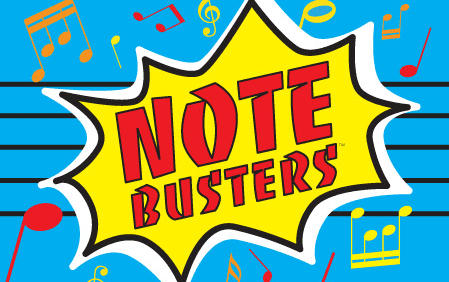All of your students practice as much as they should and more, right? OK, you can stop laughing and pick yourself up off the floor now. I know it wasn’t the brightest question.
But I asked it to make a point, of course. Haven’t you been guilty of that misbehavior? I personally am a lifetime repeat offender. As adults we all know intellectually that if you don’t practice something, you don’t get better. We tell our students and ourselves this until the bile rises in our throat threatening an embarrassing episode. So why do we keep putting it off?
In the darkest recesses of your psyche a nagging whisper gives you the answer. It’s not fun. And in this day and age nobody wants to do anything that’s not FUN!
The competition is tough
Now while I am not an advocate of the ‘everything should be entertaining’ school of thought, it is also true that practicing tests your student’s minuscule attention span. Remember, practicing is going head to head against the latest video game.
To compete with that there needs to be some pretty excellent mind candy. The very best flavor on the market seems to be success. Generally if you are good at something you like doing it over and over.
Setting goals and milestones
In order for you or your student to feel like he’s being successful he has to pass a number of observable milestones. According to studies this is one of the attractions to the ubiquitous computer games. Let’s face it, it doesn’t take long to see some progress on the computer. Most of us know that allure of almost getting to the next level of the game.
To capitalize on that same feeling our students need to have small enough goals to feel great pretty often. Not only that but they need to be able to look back and really experience how far they have come in the short practice times of a few weeks.
And you know what? There are ways to plug into this type of feel good. And a great bonus is that the student will do most of the work to set it up and get himself there.
Let your student have input
Make up several menus to give your students a few ideas. Initially they will choose the things they want to accomplish. As they become more proficient many goals will become self-evident, and they can come up with them alone. Your input will be necessary as they don’t know what they don’t know, but be aware of the fact that a major part of the process is that the student must participate in setting the goals, otherwise it is just more homework. Setting both short and long-term goals is also key (think daily, weekly, monthly, yearly, etc.).
Tracking progress
Make sure to have your students track their progress! Keeping a log book sparks your students’ competitive drive and helps them visualize their growth. As their logbooks fill up, your young musicians will feel accomplished and motivated to take on new challenges.
Once a system is put in place and there is some small amount of class time devoted to it every week then the thrill of achievement will be built in. The pleasure loving student will begin to find practice can be fun because they can check off items and see success written into the book a mere few weeks after starting. The amount that can be accomplished with this minuscule discipline is amazing.
The trick is to put the system in place and then work with it for several months. A session at the end of the month where students get to share what they have accomplished does wonders for everyone’s feel good quotient and spurs more goals and more success.
Try it. You and your students will all be much better off for the experience.
This article was written by Suzie Hammond, a teacher turned writer and factotum for: http://www.musicalcompositions.net
NOTEBUSTERS also recommends setting goals while learning to read music. When using the workbook, ensure your child records their score in the provided space at the bottom of each exercise. Also take note of the amount of time it takes to complete. Set challenging but realistic goals that become more difficult as the child progresses through each section.
As your child’s sight-reading skills improve, make sure to challenge them with new and exciting sheet music. Suzie’s site http://www.musicalcompositions.net contains sheet music for concert bands, choirs, chamber ensembles, and jazz groups that you can purchase and download. See it, hear it, download it, rehearse it. FREE Newsletter and FREE Special Report written by Carl Hammond a 35 year international music veteran.
Well written interesting music for your groups to play right now via download. Score pages & MP3s help you decide suitability.


Thanks Suzie! Good read. Definitely agree setting goals and milestones are key to learning music – the trick is getting your student (or child) to take ownership of these goals. Tracking progress is definitely helpful (and I assume a shout-out to NOTEBUSTERS as I know they have a score section 🙂 ) and helps in inspiring ownership. Hope you post again soon.
-Amanda